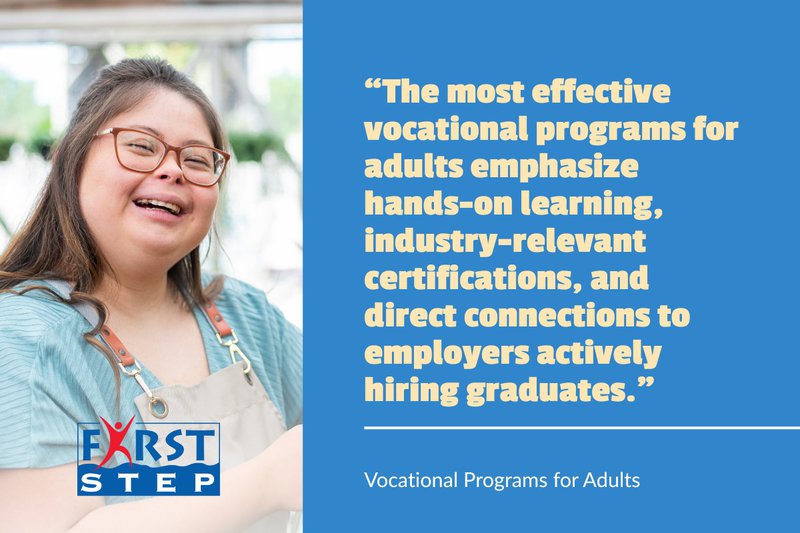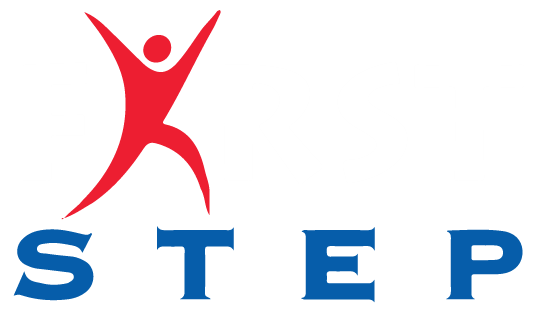Searching for the right path to help your loved one with disabilities gain meaningful employment and greater independence? Finding quality vocational programs for adults can feel overwhelming when you're navigating countless options, eligibility requirements, and program structures. Which programs truly deliver on their promises of job placement and skill development? How can you identify training that matches your loved one's unique abilities and career interests?
The good news is that today's vocational programs for adults offer more opportunities than ever before, with specialized support for individuals with developmental differences and diverse learning needs.
Key Takeaways:
- High-demand fields like technology, healthcare, skilled trades, and logistics offer vocational programs for adults with strong job placement rates and competitive wages in 4-24 months
- Flexible online and part-time options accommodate working adults and caregivers, with many programs offering evening and weekend schedules
- Comprehensive support services including housing, meals, and training are available for young adults through federal programs covering 100+ skilled trades
- Healthcare certificate programs can be completed within 1-2 semesters, leading directly to in-demand positions in medical facilities
- Support services significantly improve outcomes through childcare assistance, mentorship programs, transportation help, and career coaching that enhance program completion rates
- Specialized accommodations make vocational programs for adults with disabilities accessible through assistive technology, trained instructors, and individualized support plans
- State vocational rehabilitation programs offer free services to qualifying individuals, including job coaching, assistive equipment, and placement support
Understanding Vocational Programs for Adults
Vocational programs for adults focus on practical skill development that leads directly to employment opportunities. These programs teach job-ready competencies without requiring traditional four-year college degrees, making them ideal for individuals seeking career changes, skill advancement, or entry into the workforce.
The most effective vocational programs for adults emphasize hands-on learning, industry-relevant certifications, and direct connections to employers actively hiring graduates. Programs typically last between 4 months and 2 years, depending on the complexity of skills being taught and industry requirements.
Healthcare Career Advantages
Healthcare represents one of the fastest-growing sectors with consistent demand for trained professionals. Medical assistant and sterile processing technician programs complete training within 1-2 semesters. Students often receive equipment, modest stipends during training, and guaranteed job interviews upon program completion.
Certified nursing assistant (CNA), medical assistant, and pharmacy technician programs are widely available through community colleges. These healthcare-focused vocational programs for adults typically include clinical rotations and direct pathways to employment in hospitals, clinics, and long-term care facilities.
Comprehensive Federal Support Programs
Federally-funded vocational programs provide the most extensive support systems for adults, particularly those ages 16-24. These programs offer free housing, meals, healthcare, and training across more than 100 skilled trades and academic programs.
Participants can pursue training in healthcare, information technology, construction, automotive repair, and culinary arts. Program duration ranges from 8 months to 3 years, depending on the chosen career track. These programs also provide GED preparation for those needing to complete high school equivalency requirements.
Skilled Trades and Technical Training Opportunities
Skilled trades continue experiencing worker shortages as current professionals retire, creating excellent opportunities for new entrants. Commercial driving training prepares students for careers with strong earning potential and high job demand, typically completed within 3-8 weeks.
Cosmetology programs offer training combining practical skills with business education, requiring 6-12 months and including hands-on experience in working environments. Beauty industry careers provide entrepreneurial opportunities and flexible scheduling options.
| Program Type | Duration | Average Cost Range | Job Placement Rate | Starting Salary Range |
|---|---|---|---|---|
| IT Support Training | 4-6 months | Free-$8,000 | 80%+ | $45,000-$55,000 |
| Healthcare Certificates | 1-2 semesters | Free-$5,000 | 75-90% | $30,000-$40,000 |
| Skilled Trades | 6-18 months | $3,000-$15,000 | 70-85% | $35,000-$60,000 |
| Commercial Driving | 3-8 weeks | $3,000-$8,000 | 85%+ | $45,000-$70,000 |
Vocational Programs for Adults with Disabilities
Adults with disabilities have access to specialized vocational programs designed to accommodate diverse learning needs and provide comprehensive support services. State vocational rehabilitation programs offer individualized training plans, assistive technology, and job coaching services at no cost to qualifying participants.
The Social Security Ticket to Work program provides additional support for individuals receiving SSI or SSDI benefits, helping them transition to competitive employment while maintaining essential benefits during the process.
Inclusive Training Approaches
Effective vocational programs for adults with disabilities incorporate universal design principles, making instruction accessible through multiple learning modalities. This includes assistive technology integration, modified pacing, and specialized instructor training in disability awareness and accommodation strategies.
Programs serving neurodiverse adults often provide structured environments, clear task expectations, and peer support groups. These accommodations help participants with autism, ADHD, and related conditions succeed in technical training fields where detail-oriented work aligns with individual strengths.

Support Services That Enhance Success: Vocational Programs for Adults
Support services often determine whether adult learners complete programs and secure meaningful employment. The most impactful services include childcare assistance, transportation support, mentorship programs, and career coaching throughout the training process.
Career coaching and mentoring provide ongoing guidance for goal setting, resume building, and interview preparation. One-on-one support keeps participants focused and motivated throughout their training journey. Peer support groups build confidence and create networking opportunities that often lead to job referrals.
Access to essential tools like laptops, transportation assistance, and childcare support can determine program success. Some healthcare training programs provide equipment and stipends to cover daily expenses during training, while technology programs may defer all costs until job placement occurs.
Frequently Asked Questions About Vocational Programs for Adults
How long do most vocational programs take to complete? Most vocational programs for adults range from 4 months to 2 years, with the majority completing within 6-18 months. Technology programs typically require 4-6 months, healthcare certificates take 1-2 semesters, and skilled trades programs usually span 6-18 months depending on complexity.
Can adults with disabilities access specialized vocational training? Yes, state vocational rehabilitation programs provide free services to qualifying individuals with disabilities. These programs offer individualized training plans, assistive technology, job coaching, and workplace accommodations to ensure successful program completion and employment placement.
What makes a vocational program worth the investment? The most valuable programs combine industry-recognized certifications, strong employer partnerships, and comprehensive job placement support. Programs with 70% or higher job placement rates in growing fields typically provide excellent return on investment.
Is previous work experience required for enrollment? Most vocational programs for adults welcome participants regardless of previous work experience. Many programs specifically serve individuals reentering the workforce, changing careers, or seeking their first professional opportunities.
Practical Steps for Choosing the Right Program
When selecting vocational programs for adults, follow these essential steps to ensure the best fit for individual needs and career goals.
Step 1: Assess Individual Strengths and Interests (2-4 weeks) Conduct thorough assessments of abilities, interests, and accommodation needs. Consider both current skills and areas for development, focusing on careers that align with personal strengths and provide meaningful work opportunities.
Step 2: Research Local and Online Options (3-6 weeks) Investigate available programs through community colleges, vocational rehabilitation services, and specialized training providers. Compare program lengths, costs, support services, and job placement rates to identify the best matches.
Step 3: Connect with Program Representatives and Current Students (2-3 weeks) Schedule informational interviews with program coordinators and speak with current participants when possible. Ask specific questions about daily schedules, support services, accommodation options, and graduate outcomes to ensure program alignment with individual needs.
Expert Vocational Program Support at First Step in Arkansas
At First Step, Inc. the team understands that choosing the right vocational program represents a crucial step toward independence and meaningful employment for adults with disabilities. The organization's comprehensive approach combines individualized assessment, program matching, and ongoing support to ensure each person finds training that builds on their unique strengths and interests.
First Step's experienced professionals work collaboratively with individuals and families to navigate the complex landscape of vocational programs for adults, providing evidence-based guidance throughout the decision-making process. The team's deep understanding of accommodation needs and local employment opportunities helps connect participants with programs that truly match their goals and capabilities.
Ready to explore vocational training opportunities that can transform your loved one's future? Contact First Step today to begin a personalized consultation and discover how the right vocational program can build lasting independence and career success.


